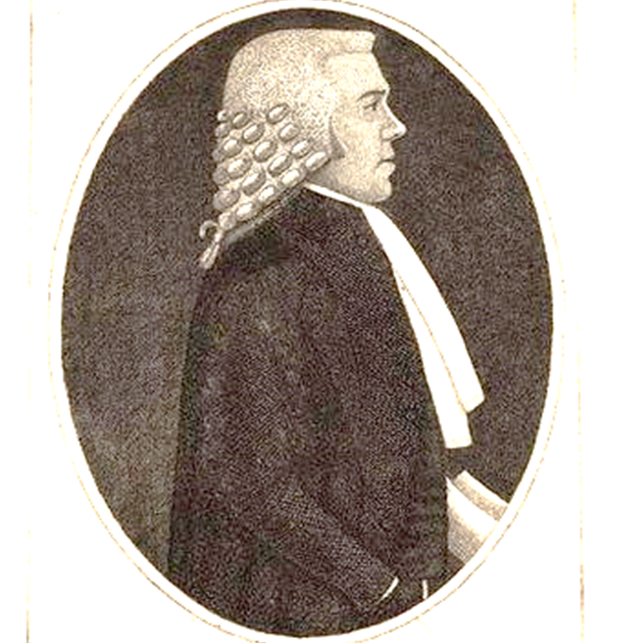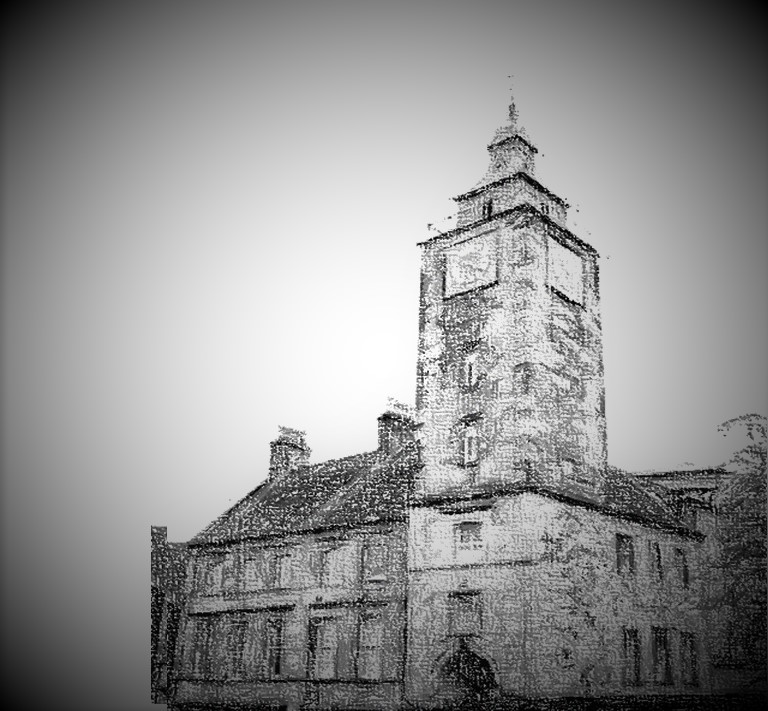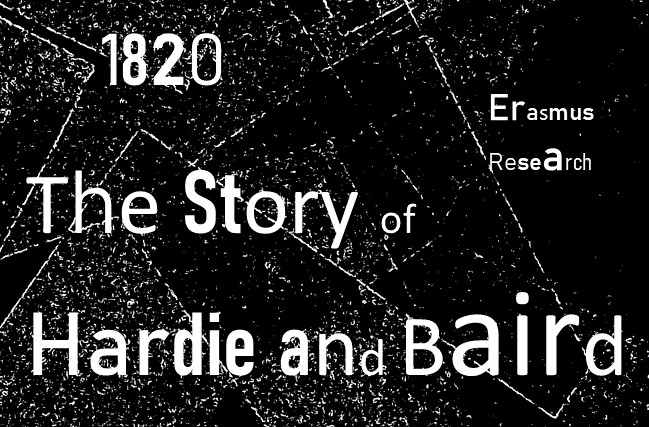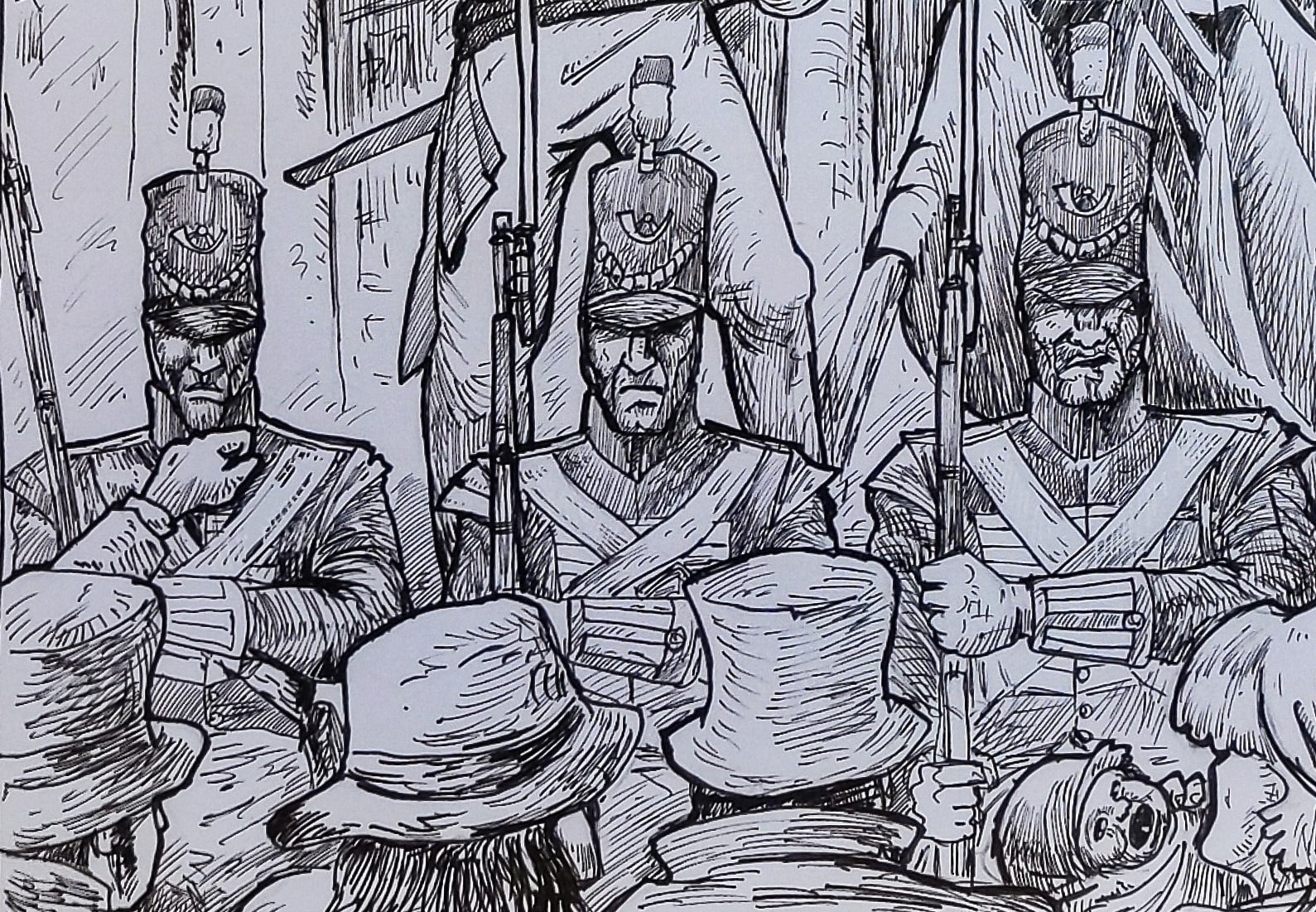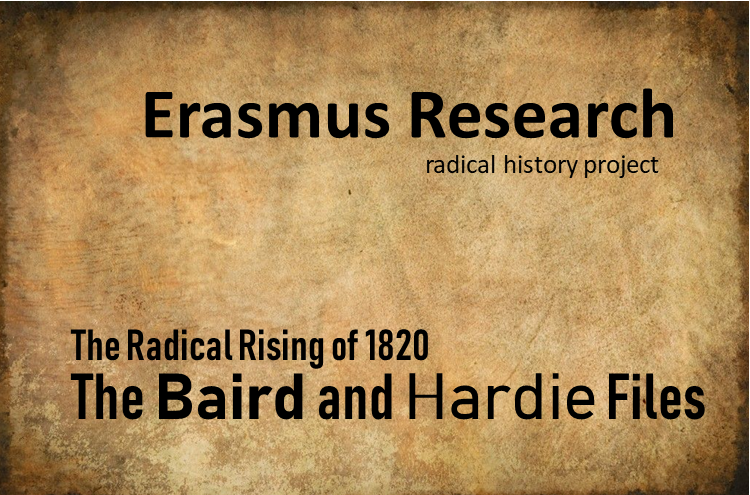CHAPTER VIII – 1820
This is the first section of Chapter VIII of the serialisation, the wording reproduced exactly as it appeared in the Stirling Sentinel, on Tuesday 2nd April 1889.
THE LORD PRESIDENT’S CHARGE TO THE GRAND JURY – THEY RETURN TRUE BILLS AGAINST THE PRISONERS – THE INDICTMENT – COMMENCEMENT OF TRIAL OF ANDREW HARDIE – THE LIST OF JURORS – THE JURY.
Lord President Hope, in charging the Grand Jury, remarked that trials for treason had been of very rare occurrence in this country. Not that we had been without materials in Scotland; for the two rebellions of 1715 and 1745 furnished a numerous list of traitors; but by special statutes the trials then all took place in England. The cases of Watt and Downie in 1794, which we have noticed in previous chapters, were, his lordship believed, the only trials for treason which had taken place in Scotland since the Union.
Proceeding to define what treason was, the Lord President said that it was not only treason actually to levy war against the King, but also, as in the case of his life, it was treason even to compass, or imagine, invent, devise, or intend the levying of war against him, provided the object was either to compel the King to change his measures, or to overawe or constrain either House of Parliament. In order to constitute this species of treason, it was not necessary that the people so levying war should appear in the shape of regular troops, divided into battalions, and regularly clothed, armed, and disciplined.
Rebellion and insurrection, from the very nature of the case, could seldom assume such appearance at first, though a little success might soon enable them to assume all the array and discipline of regular armies. Of this they had a memorable example in the rebellion of 1745. When Prince Charles, commonly called the Pretender, landed in the west, he was for some time joined only by a few half-armed and half-naked Highlanders; and yet there could be no doubt that he and his associates were as much guilty of treason the first day he raised his standard at the head of Lochshiel, as when he gained the victory at Prestonpans, and was thereby enabled to arm and clothe his followers and give them more the appearance of a regular army.
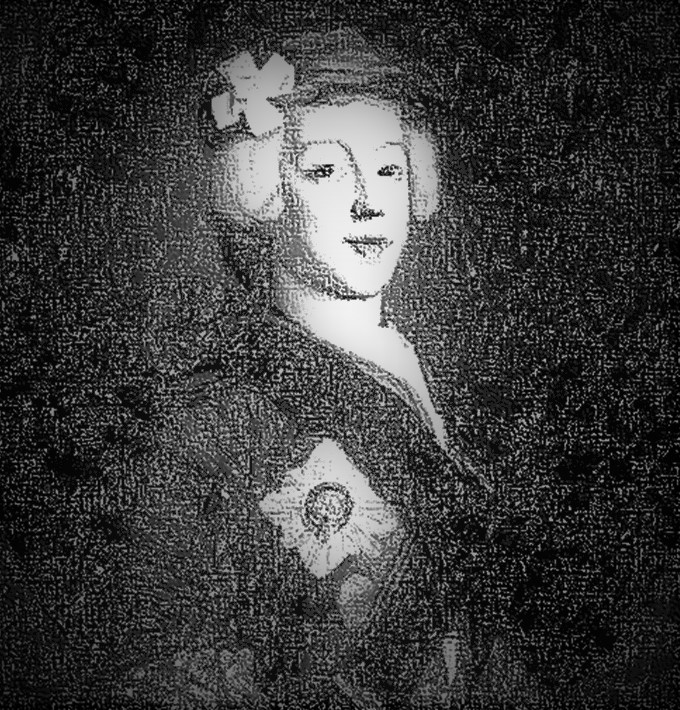
Therefore, however ill-arranged, however ill-disciplined or armed the people might be, there was no doubt that every rising or insurrection, for the purpose of effecting, by force of numbers, any innovation of a public nature, or to redress any public grievance, real or imaginary, things which could only be lawfully and constitutionally accomplished by the King’s authority, or that of Parliament, was treason, as an actual levying of war; and consequently to compass or imagine such a rising or insurrection for such purposes, would be to compass and imagine the levying of war against the King.
After this exposition of the law, the Lord President informed the Grand Jury that in discharging their duty it was not necessary for them to go so nicely and critically to work as the petty jury must do afterwards on the trial of the prisoners, if they should find bills against them. It was not necessary for them to find a true bill of indictment that they should be completely satisfied of the guilt of the accused. It was enough if they saw such strong ground of suspicion against them, arising out of the examination of witnesses as to render it proper that they should be put on their trial. They would hear for present nothing but the evidence for the crown against the prisoners. What they might have to say in defence, neither the Grand Jury nor the Lord Advocate could know, and they could not compel the prisoners to disclose it to them. This they had the advantage of reserving for their trial; so that it might well happen, and often did happen, that a Grand Jury might have the best grounds for finding a bill of indictment, and yet that the prisoner, on his trial, might be most justly acquitted. The one verdict would be no impeachment or slur upon the others.
The Court directed the Clerk to the Commission, and Messrs Robert Sconce and Robert Campbell, Procurators Fiscal, to attend the Grand Jury on the examination of witnesses on all the indictments to be preferred. The Grand Jury then retired to consider the respective bills to be laid before them, and the witnesses were sworn in Court to give evidence before the Grand Jury. Those witnesses that preferred being sworn after the English manner, were severally sworn by the Crier; those that requested to be sworn in the Scotch form, were sworn severally by the Lords Commissioners in rotation, each person repeating the words of the Scotch oath after the Commissioner had pronounced them. Several took the oath at the same time. On the return of the Grand Jury to Court, the foreman presented a true bill against the eighteen prisoners taken at Bonnymuir, whose names were as follows:-
John Baird, weaver, in Condorrat.
Thomas McCulloch, stocking weaver, in Glasgow.
Andrew Hardie, weaver, there.
John Barr, weaver, in Condorrat.
William Smith, weaver, there.
Benjamin Moir, labourer, in Glasgow.
Allan Murchie, blacksmith, there.
Alex. Lattimer, alias Lettimer, weaver, there.
Alexander Johnston, weaver, there.
Andrew White, bookbinder, there.
David Thomsom, weaver, there.
James White, tailor, there.
William Clackson, alias Clarkson, shoemaker, there.
Thomas Pike, alias Pink, muslin-sliurer, there.
Robert Grey, weaver, there.
James Clelland, smith, there
Andrew Hart, cabinetmaker, there.
Thomas McFarlane, weaver, at Condorrat.
The above eighteen persons were then put to the bar, and were informed by the Lord President that a bill of indictment for high treason had been found against them, and that they were entitled to have two counsel each to defend them, and that the Court would assign any two that they should name. At the request of the prisoners, Francis Jeffrey, Esq., and John Peter Grant, Esq., were assigned as counsel, and Messrs David Blackie and William Alexander, WS, Edinburgh, were appointed joint solicitors or agents. Messrs Colin Dawson and Robt. Haldane, writers, Stirling, being permitted to act as assistant agents. The prisoners were then conveyed out of Court, after having been informed that they would be brought up to be arraigned on the 6th July.
The Court met again next day, when true bills were returned against the following:-
St Ninians Case – James Anderson, James Rait, George Lennox.
Balfron Case – William Crawford, George Gillies, Moses Gilfillan, Andrew Reid, Andrew McFarlane, James Gunn, Robert Drew, Joseph Gettie.
Camelon Case – John McMillan, James Burt, Andrew Burt jun., Daniel Turner, James Aitken, grocer, Falkirk; James Aitken, wright, Falkirk; Andrew Dawson, Peter McCallum.
It should be explained that after Bonnymuir a number of Radicals were apprehended in various districts, and to be known as a Radical was equivalent to being chargeable with high treason.
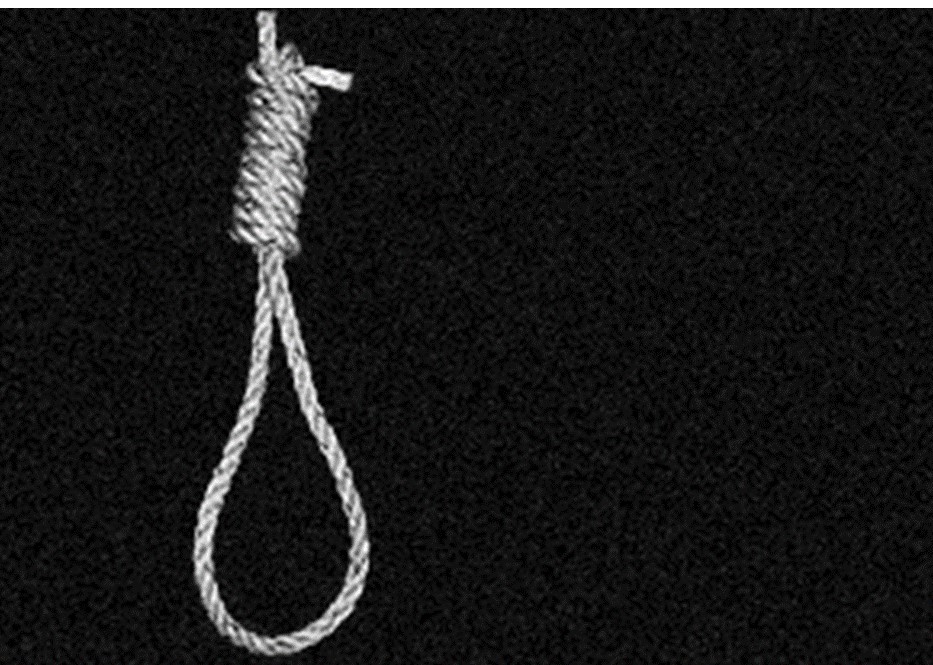
The foreman of the Grand Jury stated that in the course of the very grave examinations and deliberations in which they had been engaged in hearing evidence on the bills before them, it appeared to them that there was one individual not included in these bills who did appear to them, most unquestionably, to be most deeply implicated in the transactions which had given rise to the present Commission, and that in their opinion, if there were yet any mode by which the ends of justice might be further attained, by bringing that individual to trial, he ought to be prosecuted. This turned out to be John Johnston, from Falkirk, who was also committed for trial. Six prisoners, William Wright and his two sons, James Dewar, Walter Bain, and John Nicol, were admitted witnesses for the prosecution, and were liberated.
The next section will be published on Thursday 5th November

